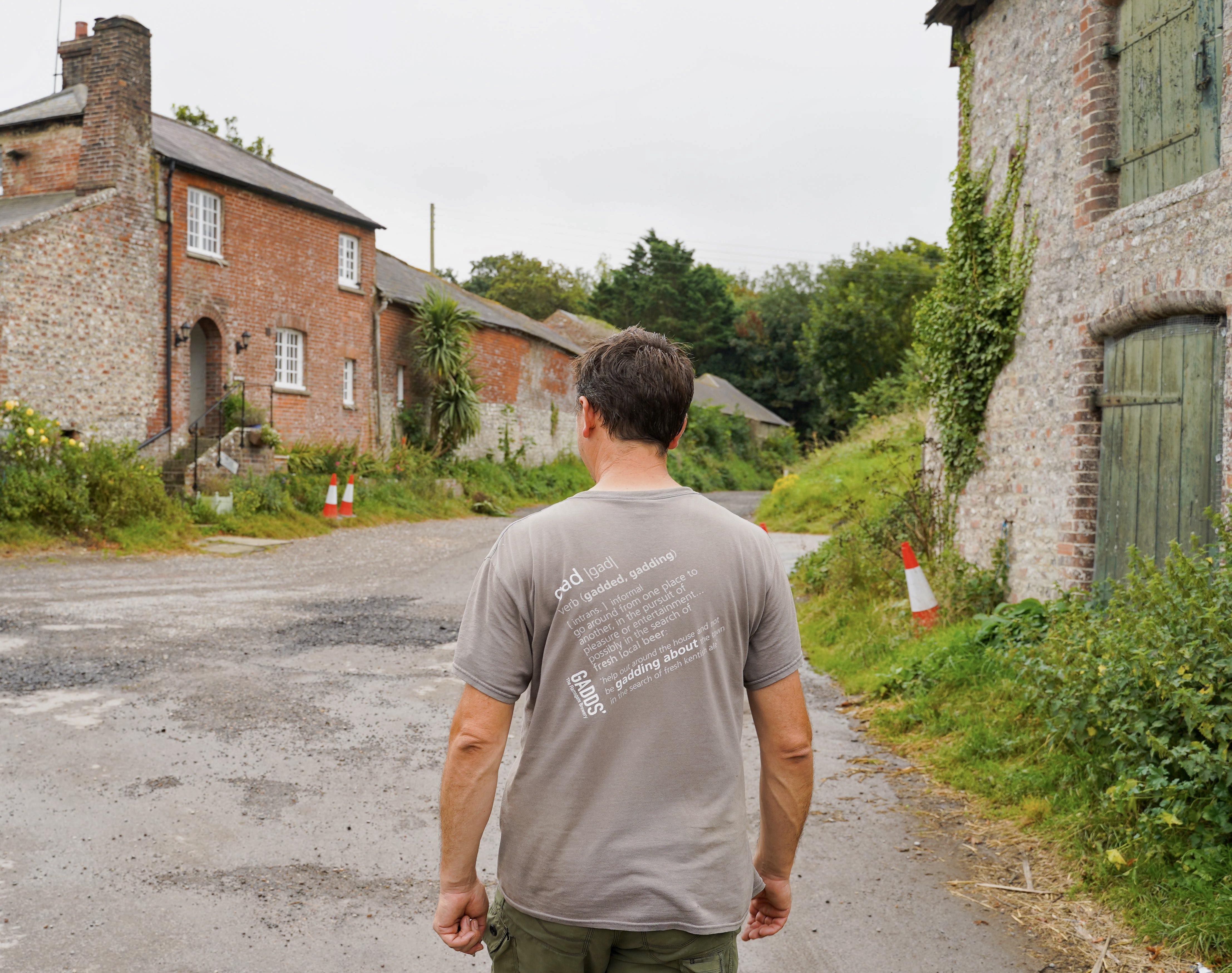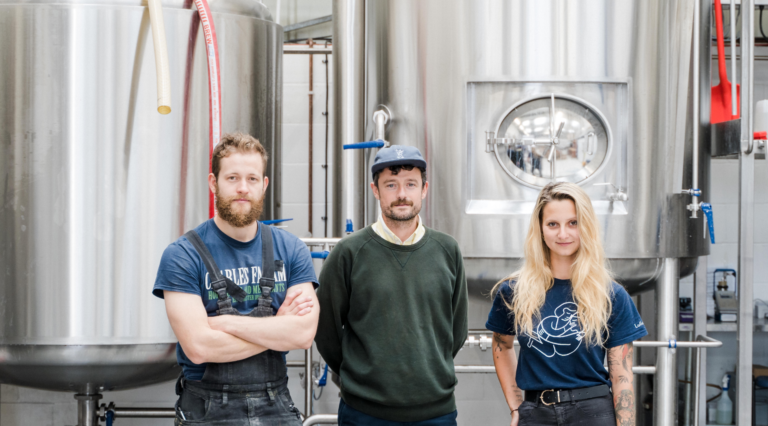Meeting the highest standards of hygiene in brewing is essential and a greater understanding of microbiology aids this relationship for all concerned, explains Chris Bayliss, national sales manager at Christeyns Food Hygiene, and Northern & Scottish Section chairman of the BFBi.
The increase in craft brewing and the interest this has generated for beer in general, has put pressure on breweries to go the extra mile to create products that incorporate unique flavours as they strive to produce the perfect brew.
It is not however just the hops, yeast and other ingredients that lead to a great drink but also the production process and faultless hygiene routine that impacts on the final taste.
Hygiene is fundamental to the brewing process, get this wrong and you’re on the road to ruin. It pays for craft brewers to invest time learning the key aspects of cleaning before they even think of producing a drop of product. In all breweries, hygiene training should form a major element of any induction.
Statista, a leading provider of market and consumer data, published data in November 2019 stating that in 2017 the average person in the UK consumed 122 pints of beer per year, with approximately 40 million hectolitres of beer produced in the UK that year. Between 2000 and 2017 the total number of breweries in UK rose from 500 to almost 2,500.
In 2018, consumers spent £5.6 billion on beer in the United Kingdom and beer remains the most popular choice when drinking alcohol in the UK, accounting for over a third of all alcohol being consumed. All this points to the fact that beer plays a major part in the lives of many of us, be that as a consumer or as an industry employee, or both.
Due to the surge in the number of breweries and the amount of beer being consumed, increased legislation has been put in place in the UK to maintain consumer confidence in the industry.
In June 2015 SALSA (Safe and Local Supplier Approval) launched its plus Beer Audit which provides small breweries and bottlers across the UK with a dedicated standard to follow that gives confidence to customers and retailers, and more importantly, keeps quality standards high.
Certification is only granted to suppliers who are able to demonstrate to an auditor that they are able to produce safe and legal beverages and are committed to continually meeting the requirements of the standard. Firms are audited annually to ensure continued compliance. In all situations, prevention is always better than cure.
There are also HACCP, (Hazard Analysis and Critical Control Points), requirements for beer production whereby the Environmental Health Department requires that brewers have a plan that covers microbiological, physical and chemical food hazards throughout the brewing process.
We should not forget that the brewing process involves microbiological activity at every stage, from raw material production and malting to stability in the package, live organisms are present.
Although most of this activity is arrested by boiling during the brewing process, any contaminants introduced after boiling can pose a threat in terms of aroma, flavour and consistency so hygiene of the production plant and packaging areas must be carefully and consistently controlled and managed.

Adopting the correct hygiene methods at every stage of the process is therefore crucial to prevent unwanted contamination. We can only effectively disinfect a clean smooth surface, so we need to use the correct product formulation to make sure there is no build-up of scale.
If any scale is allowed to develop, this provides safe havens for microorganisms to reside and go on to contaminate the next brew. Deposition of scale also provides areas where other forms of soiling may start to deposit.
In order to ensure our staff are fully up to date on all the issues regarding potential threats in the brewing sector, we have recently teamed up with microbiologist Marilyn Seedhouse who specialises in the brewing industry and currently carries out SALSA audits.
Marilyn is providing formal training for our team so that we can better inform our customers on the dangers. As we work on a personal, face to face basis to tackle individual issues, this additional microbiological background information will help add depth and understanding to the hygiene systems and protocols we recommend.
“We have to understand that many brewers are dealing with ‘live’ beers which need to be properly managed,” remarks Marilyn. “As an example, in canned craft beers, where there is no pasteurisation, the wrong yeast or bacteria being present and growing, can cause the beer in the can to spoil or even explode. Where beers are packaged bright and pasteurised, the packaging process must be very clean and hygienically maintained, otherwise spoilage can occur over time, damaging a brand reputation. As with all products, customers will always be lost when they have a bad experience.”
Marilyn continues: “Using the wrong chemicals in the wrong place in the cleaning process can be extremely dangerous. If this occurs, heat exchanger plates and the fabric of delicate brewing plant can be damaged.
“For example, Ethylene glycol, which is used in a lot of breweries as a coolant for chilling parts of the process, could contaminate the beer if heat exchangers are damaged by the use of the wrong detergents. As ethylene glycol is a substance that is deleterious to health, it is very important that everyone understands just how crucial a part of the brewing process cleaning actually is.”
Microbiological control is bound by set rules and regulations, in place to prevent and eliminate contaminating microorganisms so that the quality of the beer can be protected. Constant hygiene control will detect spoilage microorganisms as soon as possible, and by using optimised and efficient cleaning procedures this process can be made as economic as possible.
Beer spoilage microorganisms such as lactic acid and acetic acid bacteria, enterobacteriaceae and wild yeasts can be present on all types of surfaces in the brewing process and microbiological analysis will highlight any contamination. The correct steps can then be taken to eradicate any issues.
If the hygiene regimes employed are below standard, then this will have bearing on product quality as well as on the bottom line. Methodology is crucial here and that affects both time taken to clean, amount of water and energy used, as well as the quantity and type of chemicals and detergents.
A combination of methodology and chemistry is required to best tackle these issues and brewers need to understand how the chemistry works and the methods to use that will generate optimum results.

Passionate about her work, Marilyn notes: “it is important to get through to people and make the industry a better place. I have made a living out of the beer industry for over 50 years and I wouldn’t want anyone to have a bad pint! With all the diversity in today’s brewing industry, it is even more important to make sure the hygiene is right.”
The brewing industry in the UK is currently in a great place. New and exciting flavours are being developed and the market has become much more sophisticated. It is not only beer and cider that is seeing growth but new brews such as the health drink kombucha and other non-alcoholic brews are growing in interest.
CFH work with a range of breweries across the UK and Ireland, both large and small, one of which is the Magic Rock Brewery. Based in Huddersfield, West Yorkshire, Magic Rock was set up in 2011 by Richard Burhouse and after a fantastic first six months went on to being voted 2nd best new brewery in the world 2012 and 5 times a top 100 world brewer since, on the independent ratings site RateBeer.com. Since then production has more than tripled to 2.7 million pints that are sold in 25 countries worldwide.
“Magic Rock prides itself on its excellence and consistency and we needed a chemical supplier to equal our own high standards – CFH are that company’ states head brewer Stuart Ross. “From the very start of our journey they have provided us with the right products to aid the commissioning process right through to our daily cleans. Their work has been a major factor in the continuous improvements during our expansion development as cleaning and disinfection are a fundamental part of our process.”
In conclusion, whatever the brew and on whatever scale it is produced, consistently high standards of hygiene are crucial to keeping not only individual breweries on top form, but the industry as a whole.









